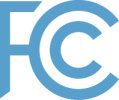
FCC Licensing Information for Motion Picture & Television Production
The Local 695 Technical Trends Committee was formed in 2008 to monitor emerging technologies that will have an impact upon the crafts of Production Sound, Recording and Non-Record Video Assist, Video Playback, Video Engineering, and Studio Projection. In addition to Local 695 members, the Committee seeks out individuals outside of the Production Engineering Community, whose relevant technical expertise can keep our understanding of the ongoing evolution of technology current, and help us understand the implications, ramifications, and applications of developments on the technology horizon.
The FCC Licensing Project was created originally as a response to the possibility of White Space Devices interfering with RF spectrum use in regards to wireless microphone use. Though this is still a potential threat to wireless microphone use in the Entertainment industry, our FCC Licensing Project become has a primary force in giving users a voice with the FCC.
In the early 2000s, the Federal Codes and Regulations were changed in regards to what entities were allowed to obtain licenses in the UHF and other bands of the RF spectrum, allowing individuals in addition to companies.
If you operate a radio transmitter (wireless microphone, wireless video assist) in…
- VHF and UHF frequencies on TV channels 2-36, which fall below 608 MHz,
- Certain frequencies in the 600 MHz guard band: 614-616 MHz,
- Certain frequencies in the 600 MHz duplex gap: 653-657 MHz for licensed use,
…then you are required to hold a license.
The license that can be obtained through these pages is essentially a national license, good across the 48 contiguous states. Different areas have different channel assignments used for Digital Television, Public Safety, and various Land/Marine Mobile transmitters. Holding this license is a privilege, and with this privilege comes the responsibility of being aware of the local assignments wherever one is transmitting. These local assignments are listed in the Federal Codes & Regulations: §90.303 and §90.311.
https://www.ecfr.gov/current/title-47/chapter-I/subchapter-D/part-90/subpart-L/section-90.303
https://www.ecfr.gov/current/title-47/chapter-I/subchapter-D/part-90/subpart-L/section-90.311
Our stated goal is to have as many technicians, engineers, and operators who are required to use wireless microphones as part of their livelihood, obtain their Part 74 License, giving them a voice with the FCC as the need arises. The Membership of IATSE Local 695, understanding the importance of such a voice, makes these pages available to any and all professionals working in the Entertainment Industry.